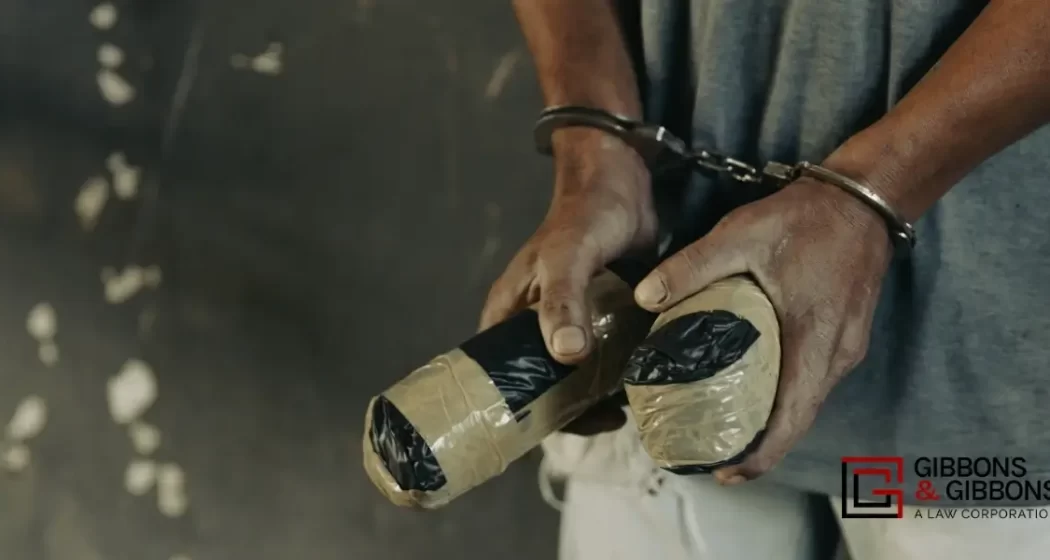|
|
Last
Modified on
Jul 02, 2025
Being arrested for a drug offense in California is stressful. Maybe you were pulled over, found with a small amount of medication, or accused of something much more serious. At that moment, you may be wondering what happens after a drug arrest in California. Knowing what happens next can help you anticipate the future and plan accordingly.
Arrest and Booking
The moment you are arrested, your freedom is at stake. You’ll be handcuffed, read your rights, and escorted to a local law enforcement facility, often the city jail. Depending on where the arrest occurred, it typically means booking at the local police department and then a transfer to the appropriate courthouse for arraignment.
Booking involves fingerprinting, a mug shot, and inventorying your personal belongings. Bail is usually set, which you can either pay in cash or work with a bond company to post.
Arraignment
This is your first court appearance and it usually happens within a few days or less. An arraignment formally informs you of the charges against you. You’ll be asked to enter a plea of guilty, not guilty, or no contest. It’s absolutely vital to do this, as it sets the procedural groundwork.
A lawyer often handles this step for you, ensuring your plea is properly entered and bail is reviewed if necessary. This is why it is of utmost importance that you secure a lawyer as soon as possible so they can handle this step for you.
Understanding the Crimes Against You
California puts drug crimes into various categories. Simple possession, especially for first-time offenders, is usually a misdemeanor. You might be eligible for diversion programs or probation. But if you are charged with possession for sale, manufacturing, or transportation, you’re looking at felony charges and potential state prison time.
Misdemeanor and felony marijuana arrests have experienced a decrease over recent years. In 2023, there were only 504 felony marijuana arrests, down from 691 in 2022. Of those, 19 were juveniles, and 485 were adults. In 2023, there were 1,972 marijuana misdemeanor arrests, down from 2,562 in 2022.
Pre-Trial Motions
After arraignment, your attorney may file motions. The goal is to question whether the evidence was legally obtained. Were you pulled over without reasonable cause? Did police exceed their search authority? Mistakes in chain-of-custody or lab handling can also cripple the prosecution’s case. If these motions succeed, key evidence could be suppressed, making dismissal or favorable plea negotiation more likely.
Many first-time offenders qualify for diversion programs instead of having to serve jail or prison time. This option is typically reserved for those who are facing possession charges. Completion of these programs can lead to dropped charges.
Plea Bargaining
For those not eligible (or denied) diversion programming, prosecutors may offer plea deals, potentially reducing charges to misdemeanors in exchange for a guilty plea, probation, or treatment. This can be appealing, especially when comparing outcome uncertainty, legal fees, and time off work. However, in some cases, an attorney may recommend taking your case to trial.
Sentencing
If you are convicted, you will then face your sentencing. Sentencing depends on a number of factors, such as the crime that was committed, the type of drug involved, the amount of the drug involved, and whether or not this was your first offense. Additionally, other factors can come into play, such as whether or not other crimes were committed during the drug crime, such as assault with a deadly weapon, or whether someone else was injured.
Misdemeanors can result in fines, diversion programs, probation, or short jail sentences, while felonies will typically result in longer prison terms and larger fines. If the drug case is on the federal level, it will typically receive even harsher punishments.
If you are sentenced to jail or prison, the type of facility depends on the length of the sentence. Sentences under one year go to county jails, while longer terms go to California’s state prisons.
Parole or Probation
When your sentence includes parole or probation, you’ll need to follow strict conditions, including regular check-ins, drug testing, or treatment. Violating these conditions can result in more jail time. After serving time, parole officers assist with your return to the community, offering reentry support.
Each stage, from arrest and bail to diversion and sentencing, can change your life’s trajectory. With the right defense, mistakes by law enforcement, procedural flaws, or improper testing can mean the difference between a felony conviction and resolving your case with minimal consequences.
FAQs
What Happens to First-Time Drug Offenders in California?
First-time drug offenders in California often qualify for diversion programs to complete instead of jail time. The purpose of these programs is to assist in rehabilitation and treatment rather than punishment. If an offender successfully completes the program, they may be able to have their charges dropped. A first-time offender may also have to undergo probation, community service, or counseling as an alternative to incarceration.
What Is the New Drug Law in California?
The new drug law refers to the updated version of Proposition 36 in California. Under this law, repeat offenses are penalized more harshly than before. Also covered in this law is the further criminalization of drug crime related to fentanyl. The objective of this is to help alleviate the opioid epidemic. Additionally, this law also includes the option for first-time offenders to participate in diversion programs in place of jail time.
What Happens After an Arrest in California?
After an arrest in California, you’ll typically be booked, fingerprinted, and possibly held in jail until your arraignment. You’ll appear before a judge to hear your charges and enter a plea. Bail may be set, and if you can’t post it, you’ll remain in custody. From there, the case proceeds to pre-trial motions, plea deals, or trial.
What Is the Difference Between Arrest and Detention in California?
Detention means police temporarily hold you for questioning or investigation without formally charging you. It usually lasts less than an hour and doesn’t always lead to an arrest. An arrest, on the other hand, means you’re taken into custody and charged with a crime. Arrests require probable cause, while detention only needs reasonable suspicion.
Contact Gibbons & Gibbons, A Law Corporation Today
If you have been charged with a drug crime, an attorney at Gibbons & Gibbons, A Law Corporation, can help you through the legal process. Contact us today to get started.





